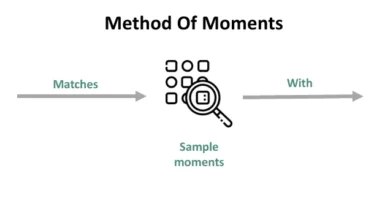What Is the Kingdom Mindset in Business Bam?

Kingdom Mindset in Business Bam

A Kingdom mindset in business Bam refers to operating your venture with values rooted in God’s Kingdom—integrity, stewardship, generosity, and purpose beyond profit. In this framework, business becomes a platform to serve others, honor God, and advance His Kingdom on earth. It’s fundamentally different from secular business paradigms: rather than focusing solely on financial metrics, a Kingdom-minded entrepreneur pursues eternal impact, community transformation, and faithful stewardship.
As outlined by Kiplinger’s feature on faith-driven business, this mindset emphasizes integrity, generosity, and long-term trust, rejecting the extremes of prosperity gospel or scarcity mentality
H2: 1. Embrace Kingdom Values—Integrity, Generosity & Stewardship
Operating with Kingdom values means business isn’t just a money-making vehicle—it’s a means to reflect God’s character.
-
Integrity: The foundation. Choosing honesty over quick gains not only aligns with biblical ethics but builds durable client trust and lasting reputation. As Kiplinger explains, rejecting exploitative deals—even if profitable—is both ethically and financially wise
-
Generosity: Goes beyond charity—it’s a Kingdom strategy, where giving multiplies impact. Leaders who embed generosity in company culture elevate employee morale, strengthen customer relationships, and uplift entire communities
-
Stewardship: Recognizing that all resources belong to God, a Kingdom mindset holds assets with open hands, using them wisely to serve, bless, and extend influence—not hoard
These values create a business environment that balances profitability with purpose—creating sustainable, faith-aligned success.
H2: 2. Seek First the Kingdom—Prioritize People & Purpose
Drawing from Matthew 6:33—“Seek first His kingdom and His righteousness…”—a Kingdom business sets Kingdom priorities above profit.
Business-as-Mission (BAM) leaders have distilled seven principles around this theme:
-
“Seek First the Kingdom” in goal-setting
-
“Wait on God” for direction
-
Choose partners aligned with Kingdom vision
-
Honor God with profits, reinvesting in both business and mission
-
Develop people—employees, suppliers, customers—as God’s children
-
Resolve conflicts between business and Kingdom through prayer
-
When tensions arise, choose Kingdom values over commercial gain
One BAM founder shared how refusing unethical kickbacks—even with potential profit loss—protected his Christian witness and business integrity. Another recounted supporting a severely ill employee, even as operations suffered—valuing compassion over efficiency
H2: 3. Infuse Purpose—Vision, Culture & Identity
Kingdom businesses are driven by purpose—not just profit.
-
Clarify Kingdom purpose: Reflect on your values, guiding Scriptures, and how your business can benefit society and advance justice—then craft a purpose statement that captures that mission
-
Embed purpose into strategy: Blend biblical principles (e.g., honesty, fairness) into daily operations. Let prayer, Scripture, and Kingdom values steer decisions—like ethical sourcing, sustainable practices, or charitable initiatives
-
Cultivate a Kingdom-centred culture:
-
Encourage respect, servant leadership, and collaboration.
-
Empower team members to leverage their unique gifts for greater Kingdom impact.
-
Continuously share and reinforce the Kingdom mission with staff, so they feel part of something greater
-
This alignment of vision and values fosters a deep sense of identity and direction—for both leaders and employees.
H2: 4. Build Kingdom Culture: Gratitude, Prayer & Character
A thriving Kingdom mindset goes beyond strategy to become a lived corporate culture.
-
Gratitude rituals: A business (e.g., Miinella) embedded a weekly “Thankfulness Jar,” where team members share personal blessings. This simple practice builds unity, morale, and an atmosphere shaped by thanksgiving
-
Spiritual covering through prayer: Having a team member (a “corporate intercessor”) dedicated to praying for the business—especially during launches or crises—can anchor the company in spiritual protection and perspective
These practices help transform workplace culture—shaping hearts and values rather than only procedures.
H2: 5. Kingdom Keys to Growth—Fruitful, Multiply, Replenish, Subdue
Dr. Myles Munroe’s Kingdom framework offers a five-step path to business success grounded in God’s design:
-
Be Fruitful: Active productivity—turning your gift or creative idea into valuable fruit people will pay for.
-
Multiply: Enable your offering to scale. A service can become a product to extend reach.
-
Replenish: Ensure production actually reaches the people through effective distribution.
-
Subdue: Master your market niche—become the first brand your customers think of.
-
Dominate: When you’ve produced, multiplied, distributed, and dominated your niche, you’ve created Kingdom-level impact (e.g., Apple, Microsoft)
This model encourages Kingdom entrepreneurs to build sustainable, scalable ventures that generate wealth for Kingdom purposes.
H2: 6. Measure Kingdom Impact & Celebrate Faithful Leadership
To lead Kingdom-mindedly, measure what matters—not just revenue, but Kingdom impact.
-
Define metrics beyond finances: track lives changed, community uplifted, or spiritual growth in employees and customers.
-
Celebrate wins aligned with Kingdom purpose—testimonies, social change, or spiritual milestones—alongside financial milestones.
-
Regular reflection of God’s character and alignment with His mission helps ensure your business remains Kingdom-aligned.
H2: Final Reflections—Why A Kingdom Mindset Matters in Business
To wrap up, here are key reasons to adopt a Kingdom mindset in business Bam:
-
Durable success: Built on integrity and generosity, Kingdom businesses forge long-term relationships, reputation, and resilience.
-
Meaning beyond profit: Purpose-filled work fosters passion, loyalty, and fulfillment—both for leaders and teams.
-
Eternal impact: Kingdom businesses aren’t merely transactional—they have spiritual and societal ripple effects—transforming hearts, communities, and markets.
-
Sustainable growth: Integrating the Kingdom Keys (be fruitful, multiply, replenish, subdue) ensures growth is both ethical and scalable
-
Cultural transformation: Embedding gratitude, prayer, and Kingdom values reshapes workplace culture into one defined by faith, love, and service
Closing Thoughts: Linking Faith and Business, Kingdom and Marketplace
If you’re a business leader seeking deeper alignment with God’s Kingdom, remember: profit and purpose aren’t mutually exclusive. The Kingdom mindset equips you to merge faithful discipleship with entrepreneurial excellence.
Lead with integrity, practice generosity, build culture shaped by gratitude and prayer, and measure what truly matters. In doing so, you’ll build a business that honors God, blesses others, and leaves a legacy of eternal significance.




